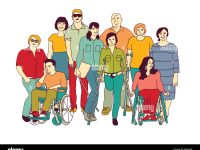If your employer has deemed you unfit to work due to your dystonia condition, it’s important to understand your rights and explore your options. Here’s a general overview of what you can do:
1. Review your employer’s decision:
- Obtain a copy of the decision in writing: This will help you understand the specific reasons for your employer’s decision and the process for appealing it.
- Consult with your doctor: Discuss your condition and its impact on your ability to work with your doctor. They can provide you with a medical opinion that may support your case.
2. Explore your legal options:
- Disability discrimination laws: In many countries, there are laws that protect people with disabilities from discrimination in the workplace. These laws may require your employer to make reasonable accommodations for your condition to allow you to continue working.
- Consult with an attorney: An attorney specializing in employment law can advise you on your rights and represent you in any legal proceedings.
3. Consider alternative options:
- Request a transfer to a different position: If your current position is no longer feasible, you may be able to transfer to a different role within the company that better suits your abilities.
- Explore other employment options: If your employer is unwilling to accommodate you, you may need to consider finding a new job that is more suitable for your condition.
4. Seek support:
- Support groups: Connecting with others who have dystonia can provide emotional support and practical advice.
- Disability organizations: Organizations that advocate for the rights of people with disabilities can provide information and resources.
Remember:
- Document everything: Keep records of all communication with your employer, doctor, and any other relevant parties.
- Know your rights: Understand the laws that protect people with disabilities in your country.
- Don’t give up: There are resources available to help you navigate this challenging situation.
It’s important to seek professional legal advice to understand your specific rights and options. An attorney can help you determine the best course of action based on your individual circumstances.





















0 Comments